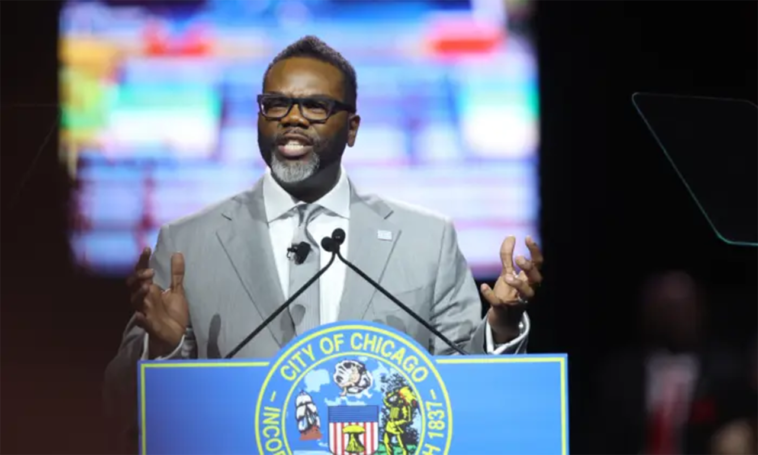Chicago Mayor Sparks Criticism with Reparations Proposal to Curb Crime. Chicago Mayor Brandon Johnson has proposed a controversial plan to address crime prevention by paying reparations to African-American residents.
Johnson, who has been in office for eight months, outlined the initiative during a CNN interview, attributing crimes committed by black Americans to failed government policies and advocating for reparations as a means of rectifying historical injustices.
Under the proposal, Mayor Johnson suggests allocating funds from the $100 million already designated for violence prevention in Chicago. He specifically earmarked $500,000 as reparations, aiming to disrupt what he referred to as the “cycle of violence” in the city.
However, the plan has ignited a firestorm of criticism, with various concerns raised about the viability and fairness of implementing such reparations. Some argue that reparations have already been paid through the sacrifices made during the Civil War, questioning the logic of linking financial compensation to a reduction in criminal behavior.
Social media platforms, including one post on X, have become a battleground for differing opinions, amassing thousands of comments reflecting the public’s diverse perspectives on the issue.
Fox News contributor David Webb labeled the reparations plan as “ridiculous” during a panel discussion, accusing Mayor Johnson of insinuating that providing cash to black residents would serve as a deterrent against criminal activities.
Webb emphasized broader challenges facing Chicago, such as illegal immigration, economic struggles, and reductions in police forces, suggesting a need for comprehensive solutions.
The proposal mirrors Evanston’s approach, a suburb of Chicago that made headlines as the first city in the United States to implement reparations for black Americans in July. Evanston’s program involves a $25,000 payout to qualifying residents with historical ties to the city between 1919 and 1969. Critics argue that this amount is insufficient, and the eligibility cutoff is arbitrary, given ongoing discrimination beyond 1969.
Civil rights activist Bennett Johnson voiced dissatisfaction with the Evanston reparations, deeming them inadequate and highlighting the persistent discrimination faced by black individuals.
Recipients, including 77-year-old Vietnam veteran Kenneth Wideman, expressed disappointment, stating that the payouts fell short of the historical promise of “40 acres and a mule.”
The ongoing debate surrounding reparations reflects broader discussions on addressing historical injustices and systemic inequalities. The differing opinions underscore the complexity of implementing reparations as a solution, raising questions about eligibility criteria, fair compensation, and the potential impact on crime reduction, community development, and similar initiatives across the country.
Critics argue that Mayor Johnson’s plan oversimplifies the complex root causes of crime in Chicago and neglects broader socioeconomic factors. They contend that addressing issues like economic disparities, education, and employment opportunities is crucial for sustainable change. Skepticism also surrounds the efficacy of financial reparations as a crime prevention strategy.
As Chicago navigates this contentious proposal, it becomes a focal point for larger debates about the role of reparations in rectifying historical injustices and fostering social and economic equity. The city’s experience may serve as a test case, influencing discussions and decisions in other municipalities considering reparations



One Comment
Leave a ReplyOne Ping
Pingback:Chicago's mayor refuses to answer THREE times
Join the Community and Be a Part of the Conversation
You must be logged in or registered to post a comment.